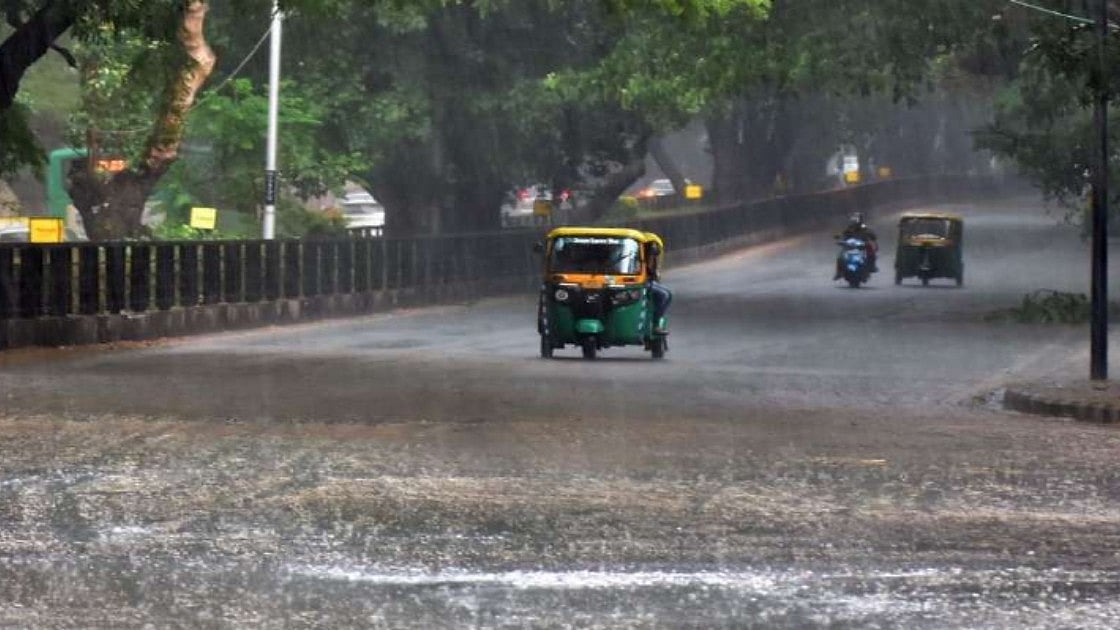**South Indian States Dominate IMFL Sales, Contributing 58% Revenue in FY25: CIABC Report**
New Delhi: South Indian states continue to lead the sales of Indian-Made Foreign Liquor (IMFL), accounting for 58 percent of the total revenue in the financial year 2024-25 (FY25). According to data from the industry body Confederation of Indian Alcoholic Beverage Companies (CIABC), Karnataka retained its position as the top contributor nationally, providing 17 percent of the pan-India IMFL volumes in FY25.
The five Southern states—Andhra Pradesh, Karnataka, Kerala, Tamil Nadu, and Telangana—along with the Union Territory of Puducherry, maintained their dominance by consuming a combined total of 23.18 crore cases of IMFL during the year ending March 31, 2025. This accounts for 58 percent of the total sales across India.
“South’s dominance is near-absolute in IMFL sales for FY25, with the rest of India sharing the remaining 42 percent,” the CIABC data revealed.
### IMFL Whisky Sales Slow Down Nationally
Despite strong regional performance, the national sales volume of IMFL Whisky registered a modest growth of 1.4 percent in FY25, reaching 40.17 crore cases compared to 39.62 crore cases in FY24. CIABC Director General Anant S Iyer attributed this slowdown primarily to a weak first quarter last year due to general elections and excise policy challenges in various states.
“We have been in constant dialogue with state governments, raising concerns about excise policy issues. Every year, significant hikes in state levies and policy changes impact sales in the short to medium term,” Iyer told PTI.
### Understanding IMFL and State-Wise Performance
The term IMFL refers to alcoholic beverages such as Whisky, Vodka, Rum, Gin, and Brandy, which are distinct from country liquor and traditional drinks like todi, fenny, and arrack.
Among the states, Karnataka led with 6.88 crore cases sold, accounting for 17 percent of national IMFL volume sales, followed closely by Tamil Nadu at second place with 6.47 crore cases (nearly 16 percent of total sales). In comparison, Karnataka had sold 6.83 crore cases in FY24, while Tamil Nadu registered 6.44 crore cases.
Telangana and Andhra Pradesh each contributed around 9 percent of the IMFL sales, with 3.71 crore and 3.55 crore cases respectively. Kerala ranked seventh nationally, with sales of 2.29 crore cases. Notably, the Southern region witnessed an overall growth of approximately 1 percent in sales volume.
Puducherry reported a 10 percent growth in FY25, with sales of 0.28 crore cases, ranking 19th nationally.
### Regional Highlights Across India
The Northern region accounted for 20 percent of IMFL sales, led by Uttar Pradesh with 2.50 crore cases, ranking sixth nationally with 6 percent growth in FY25. Other northern states included Rajasthan (9th), Delhi (10th), and Haryana (11th), registering sales of 1.37 crore, 1.18 crore, and 1.17 crore cases respectively. Overall, the North saw a modest 1 percent growth in IMFL sales.
In the Western region, which contributed 12 percent to the national IMFL sales, Maharashtra was the frontrunner with 2.71 crore cases, making up 58 percent of the region’s sales and registering a 4 percent annual growth. The western region posted a 3 percent growth in total sales.
The Eastern region accounted for 10 percent of IMFL sales. West Bengal led this segment with 1.49 crore cases sold, ranking eighth pan-India with 4 percent growth. Other states like Odisha (0.98 crore), Assam (0.96 crore), and Jharkhand (0.32 crore) followed.
However, some markets faced setbacks. Punjab and Jammu & Kashmir saw declines of 20 percent and 15 percent respectively in IMFL sales in FY25.
### Emerging Markets and Policy Outlook
Jharkhand, Rajasthan, and Puducherry were among the markets reporting significant growth, at 15 percent, 13 percent, and 10 percent respectively.
“We are witnessing good growth in states such as Uttar Pradesh, Rajasthan, West Bengal, Odisha, and Andhra Pradesh. Delhi remains a major market where we await the introduction of a new excise policy, which is expected to boost growth,” said Anant S Iyer.
### Trends in the Premium Segment and Industry Challenges
On industry trends, Iyer noted a marked increase in premium and luxury segments, especially in whiskies. “Many companies are experimenting with premium whiskies, rums, and vodkas. Premium brands are expected to perform well with new launches and innovations.”
However, challenges persist. High taxation levels, frequent policy changes like Maharashtra’s recent introduction of the Minimum Markup Limit (MML), discrimination against Indian-made foreign liquor via brand-specific levies, and unresolved old dues in states like Telangana continue to affect the industry adversely.
India remains the largest whisky market in the world by volume and is seeing a clear trend toward premiumization.
—
*Disclaimer: This story is based on a syndicated feed; only the headline has been modified.*
https://www.freepressjournal.in/business/southern-states-dominate-indian-made-foreign-liquor-sales-roping-in-58-revenue
